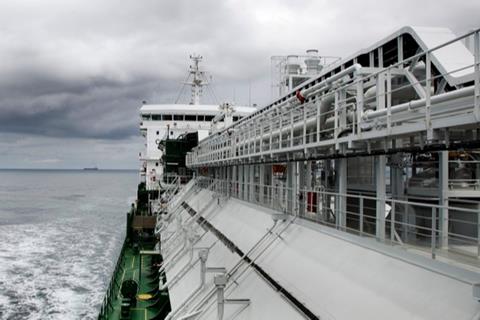Denmark has just concluded a political agreement with Belgium and Flanders on transport and storage of CO2 across national borders.
Danish Shipping said the agreement is the first of its kind and can benefit several of its members.
“Right now, things are moving fast and the agreement with Belgium and Flanders sends a clear message that you can and should invest wholeheartedly in CO2 storage in Denmark,” saidJacob K. Clasen, deputy director general and deputy CEO of Danish Shipping.
”It is important that we do not rest on our laurels but take this agreement as a steppingstone towards more bilateral agreements with our European partners. Or even better, that we create a European internal market for maritime transport of CO2.”
Carbon imports
Mr Clasen said thast with the new agreement the possibility of importing CO2 from abroad to store it safely in the depleted oil and gas fields has taken a big leap forward.
In practice, the agreement means that a shipping company like Dan-Unity CO2, which focuses on the transportation of CO2, gets a glimpse of the outline for an international market for CO2 transport.
“We find the news about the Danish-Belgian agreement very positive as it enables us to transport CO2 on a larger scale than previously. At Dan-Unity it is important that steps are taken towards an actual market for the transportation of CO2 for storage,” saidSteffen Jacobsen, CEO of Dan-Unity CO2.
”Denmark and Belgium have taken the first step. Now, we would like to see more agreements to follow with Denmark taking the lead, but also between more of our potential European markets.”
In addition to Dan-Unity, Danish Shipping has several members who prepare former oil and gas fields to be able to store CO2 underground.
Geological Survey of Denmark and Greenland (GEUS) estimates that the total storage potential in Danish underground is between 12 and 22 billion tonnes of CO2.
This is between 400 and 700 times more than Denmark’s total of CO2 emissions at the current level.






